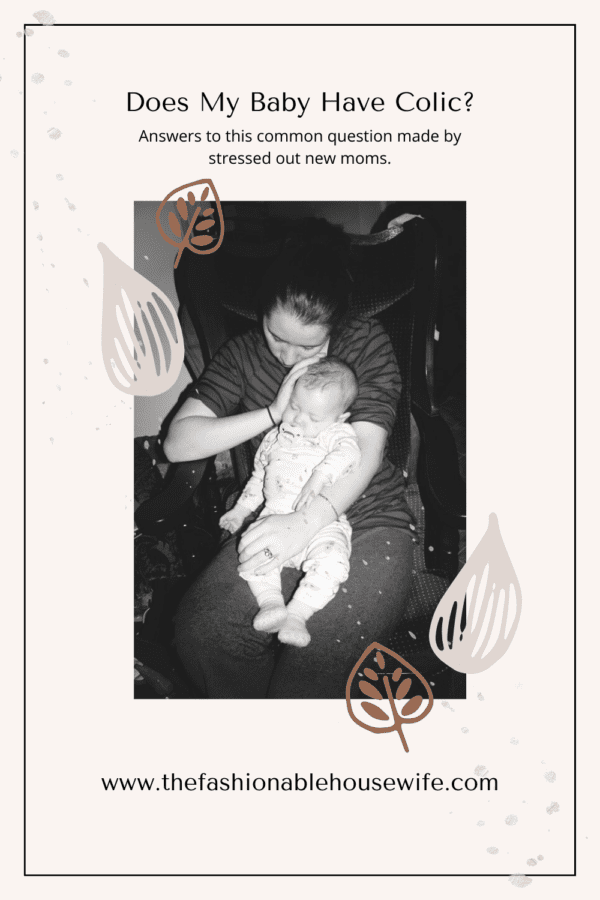
Colic is a term that is used to describe excessive, frequent crying fits in otherwise healthy babies. These crying fits are normally difficult if not impossible to soothe, and go on for hours at a time for no apparent reason.
Colic normally occurs in babies around 2-3 weeks old, and resolves itself by the time the baby is 3 months old. Colic is not unusual with 20-30% of babies crying excessively for no apparent reason – but can be extremely stressful for the parents.
Colic can be very confusing at first, because there doesn’t seem to be a reason why your baby is crying. If your baby does not need a feed or a nappy change and is not in any physical discomfort, it might seem like the crying is completely random. You should see a doctor first to rule out any underlying medical conditions, but if everything else has been ruled out and the crying persists, your baby might have colic. For more FAQ’s, the Careline team have released a new content hub for parents that can be used if you need more information.
What Are The Signs And Symptoms Of Colic?
Generally, colic is the culprit if the crying fits come in ‘rules of three’. This means that they last for at least 3 hours at a time, occur at least 3 days a week and for at least 3 weeks in a row. If your baby is normally thriving with no identifiable medical problem and crying inconsolably they may have colic.
Symptoms include:
- Reddened or flushed face, clenching of fists
- Crying fits that occur at around the same time each day (usually in the afternoon or evening)
- Eating or sleeping is disrupted by the crying
- Unexplained irritability
- There seems to be no other reason for the crying
- The crying seems louder or more hysterical than usual
- Bodily tension – such as pulled up legs, stiffened arms or clenched fists
- Your baby is inconsolable, no matter what you do
How Is Colic Diagnosed?
Colic is not a disease and has no specific treatment or medication, so the only way to know for sure that it’s colic is to rule out everything else. Your doctor can rule out other possible conditions, like reflux or an allergy, and advise you on how best to manage the colic. It may be helpful for you to keep a record of your baby’s episodes of distress, so that you can be as specific as possible when describing them to your doctor.
How Do I Know If It’s Colic Or Something Else?
Generally, the difference between colic and normal crying is that normal crying is an indication that the baby needs something, and the crying will cease once their needs have been attended to. The nature of colic means that even when your baby is perfectly healthy and all of their needs have been met, they will still cry.
Colic is also nearly impossible to soothe – even if you hold your baby and swaddle them in blankets, it may not soothe the crying. This can be extremely stressful for parents, and it’s important to take breaks when you can and find the support that you need.
What Causes Colic?
The exact causes of colic are not known but several factors may contribute to its occurrence, these can include:
- Excessive swallowing of air
- Too rapid feeding or over feeding
- Overexcitement
- Anxious and easily disturbed mother
- Immature digestive system
What Should I Do If I Think My Baby Has Colic?
If you think your baby has colic, the first thing you should do is take them to a doctor to make sure nothing else is the problem. Once you’ve done this, there are a few things you can try to help soothe your crying baby. You can try the following methods:
- Respond quickly when your baby starts to cry. Even if this doesn’t soothe them, it will teach them that they are safe and cared for.
- Make sure that your baby is comfortable and warm – swaddle them in a blanket or sheet to comfort them.
- Take them into a room with dim lighting, rather than a room with harsh, bright lights.
- Try giving your baby a warm bath or playing some soothing music.
Remember that you need support too, so take breaks when possible and try to share the responsibility of looking after your baby with your partner, a friend or a relative. If you feel like you are getting very distressed, seek support immediately.



